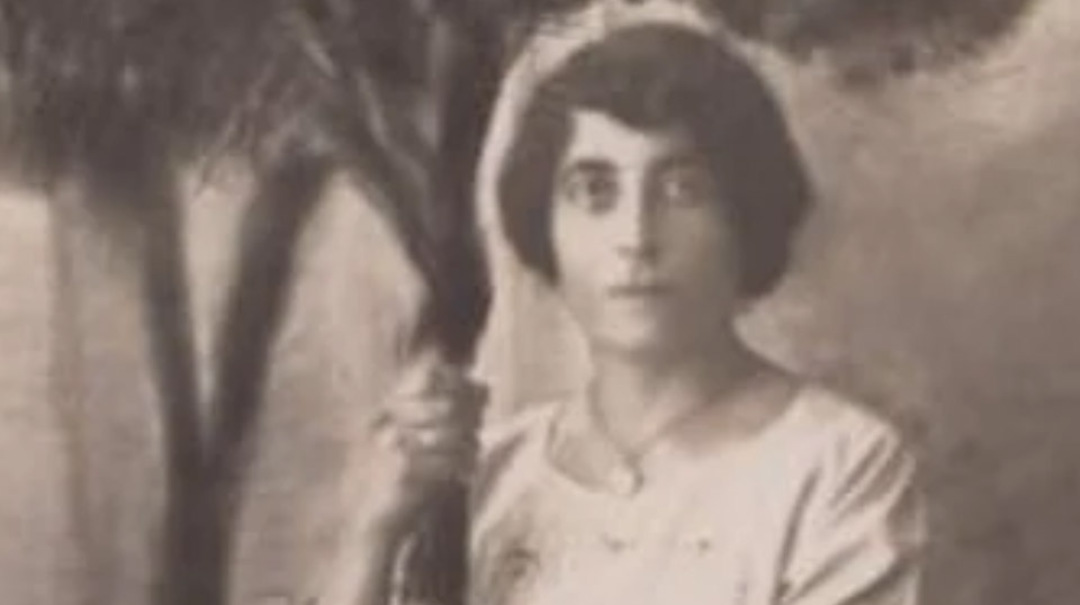-
The First Palestinian Female Photographer

Once again, International Women’s Day is upon us. It is a day to celebrate women and their achievements. It is a day for us to remember how powerful we are. And it is a day to support one another in a world that is still male dominant. In the Western World, we are familiar with historic women such as Emmeline Pankhurst, Anne Frank, Rosa Parks, Maya Angelou, and Jane Austen. But what about women in the Middle East, or more specifically women in Palestine? Their voices are still hidden to the majority of us.
One of these voices belong to the Palestinian woman Karimeh Abbud. Born in 1893, in Bethlehem. Karimeh Abbud was one of the first female photographers in the Arab World. Her photographs are a vessel for her voice. She captured what it was to be a Palestinian through her images of landscapes and portraiture.
Karimeh Abbud’s, voice is important since she was a pioneer in photography. She was the first Arab female photographer in Palestine. She owned and ran her own photography studio during a time that Palestine had a thriving photography culture which was dominated by men. The scholar in Palestinian photography, Issam Nasser states in a 2011 article titled ‘Early Local Photography in Palestine: The Legacy of Karimeh Abbud’, that sometime in 1932, Karimeh Abbud, published an advertisement in the Al-Karmel newspaper stating that she was the only national female photographer, whereupon she thanked her mentor, who appears to have been a male. Her mentor is unknown, but Abbud gives thanks by using the Arabic masculine term ‘musawer’ rather than the Arabic feminine term ‘musawera’ thus, insinuating that her mentor was a male. In her advertisement and her photographs, she included the term ‘Lady
Photographer’ (fig. 1), which gives more emphasis to her voice of being a female photographer in a time when there did not appear to be any others.

Fig 1.
Furthermore, Nasser carried out a study to see if there were any more Arab female photographers in Palestine as well as Lebanon and Egypt. His results returned zero results of Arab women photographers in The Palestine Directory Handbook for women photographers in Palestine nor did he find any references of women in his studies of early photographers in Lebanon and Egypt. He did, however, find that there were Palestinian female photography assistants. Najla Krikorian was an assistant to her husband and Margo Abdou helped run her brother’s photography studio when he was unavailable.
Karimeh Abbud, started her photography in portraiture in the 1920s and then expanded to photographing landscapes and cities in Palestine. Portraiture was a popular genre of photography in Palestine. Clients would attend studios to have professional photos taken of themselves either independently or in a group. What makes Abbud’s portraiture different from her male contemporaries that she would expand her portraiture photography into the homes of Palestinian families. She specialised in taking photos of women and children by capturing them in their own environment by having a more intimate and personal experience. It added an extra dimension to their photos rather than using a generic stylised backdrop that you would get in a photography studio. Additionally, this contributed to the success of her photography since male photographers were not permitted to enter strangers houses and take photos of women.

Fig 2.
Her photography of landscapes allows the viewer to see Palestine before the catastrophic event of 1948. Many of the places she photographed, no longer exist as a result of the occupation of Palestinian lands. She photographed landscapes and buildings in different Palestinian towns. These include but are not limited to: Bethlehem, Jerusalem, Haifa, Nazareth, and Nablus. These photographs give a window into Palestinian life during the 1920s and 1930s.


In addition to being a female photographer who travelled around Palestine capturing the land and its people, she was an artist. Her artistry in some of her photographs juxtapose photography and hand-painting. The following photograph shows a lady with her hands around a tree trunk. The tree was hand-painted by Karimeh Abbud.

Fig 6.
It is important to bring lesser-known pioneering women to light not only for those in the Arab world but also the Western world. Little is known about them and the information surrounding them is not as vast as important female figures in the Western world. For example, many of the available sources were only available in Arabic. My Arabic is limited so I could only use English textual and audio sources. However, despite the limitations on researching an important female figure from Palestine, it has been possible to bring her name and her photography in a male dominate role to an audience in the modern-day world.
Recognising Karimeh Abbud, and her work is just as important today as it was in the 1920s and 1930s. Zionist propaganda continues to spread that Palestine and Palestinians do not exist as a result of the famous statement made by the late Israeli Prime Minister, Golda Meir. In June 1969, Meir was quoted and published in the Sunday Times and Washington Post, stating that ‘there was no such thing as Palestinians’ and ‘they did not exist.’ The photographs taken by Karimeh Abbud, disprove this statement. In contrast to Golda Meir’s claim, Palestinians lived in flourishing communities throughout Palestine.
I hope this short introduction to Karimeh Abbud, inspires you to research more about her and the legacy she has left behind. She is only one woman out of many notable women in Palestine, but Palestinian women have been breaking barriers for centuries and they continue to do so. Through our accessible means, we are able to, bit by bit, get their buried voices speaking again.

Written By Leila Afanah
BY: falastina
You May Also Like
Popular Posts
Caricature
BENEFIT Sponsors BuildHer...
- April 23, 2025
BENEFIT, the Kingdom’s innovator and leading company in Fintech and electronic financial transactions service, has sponsored the BuildHer CityHack 2025 Hackathon, a two-day event spearheaded by the College of Engineering and Technology at the Royal University for Women (RUW).
Aimed at secondary school students, the event brought together a distinguished group of academic professionals and technology experts to mentor and inspire young participants.
More than 100 high school students from across the Kingdom of Bahrain took part in the hackathon, which featured an intensive programme of training workshops and hands-on sessions. These activities were tailored to enhance participants’ critical thinking, collaborative problem-solving, and team-building capabilities, while also encouraging the development of practical and sustainable solutions to contemporary challenges using modern technological tools.
BENEFIT’s Chief Executive Mr. Abdulwahed AlJanahi, commented: “Our support for this educational hackathon reflects our long-term strategic vision to nurture the talents of emerging national youth and empower the next generation of accomplished female leaders in technology. By fostering creativity and innovation, we aim to contribute meaningfully to Bahrain’s comprehensive development goals and align with the aspirations outlined in the Kingdom’s Vision 2030—an ambition in which BENEFIT plays a central role.”
Professor Riyadh Yousif Hamzah, President of the Royal University for Women, commented: “This initiative reflects our commitment to advancing women in STEM fields. We're cultivating a generation of creative, solution-driven female leaders who will drive national development. Our partnership with BENEFIT exemplifies the powerful synergy between academia and private sector in supporting educational innovation.”
Hanan Abdulla Hasan, Senior Manager, PR & Communication at BENEFIT, said: “We are honoured to collaborate with RUW in supporting this remarkable technology-focused event. It highlights our commitment to social responsibility, and our ongoing efforts to enhance the digital and innovation capabilities of young Bahraini women and foster their ability to harness technological tools in the service of a smarter, more sustainable future.”
For his part, Dr. Humam ElAgha, Acting Dean of the College of Engineering and Technology at the University, said: “BuildHer CityHack 2025 embodies our hands-on approach to education. By tackling real-world problems through creative thinking and sustainable solutions, we're preparing women to thrive in the knowledge economy – a cornerstone of the University's vision.”
opinion
Report
ads
Newsletter
Subscribe to our mailing list to get the new updates!






















